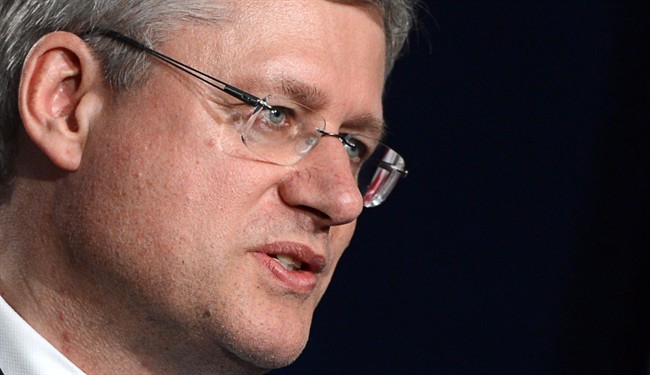OTTAWA – Canadians can expect to hear about new measures to track sex offenders and a victims bill of rights in the coming throne speech – the latest effort to burnish the Harper government’s crime-fighting credentials.

But several more vexing and potentially costly issues confront the public safety and justice ministers as a new session of Parliament looms.
The ballooning cost of natural disasters, a new government emergency centre and rising expenditures on policing – despite a falling crime rate – are just a few of the challenges, internal notes obtained by The Canadian Press show.
The Harper government has promised a national public database of the names of high-risk sex offenders guilty of crimes against children. Convicted sex offenders would also have to alert authorities before leaving Canada.
The bill of rights — being developed with input from cross-country consultations — is aimed at improving the experience of victims as they deal with the criminal justice system, the government says.
These are the latest in a string of justice-related initiatives the Conservatives like to tout in campaign-style events aimed at securing the “tough-on-crime” political turf that has proven key to their electoral strategy.
However, the internal notes released under the Access to Information Act indicate Public Safety Minister Steven Blaney and Justice Minister Peter MacKay — both new to their portfolios — are grappling with a full slate of decidedly less marketable policy issues.
- Life in the forest: How Stanley Park’s longest resident survived a changing landscape
- Bird flu risk to humans an ‘enormous concern,’ WHO says. Here’s what to know
- Roll Up To Win? Tim Hortons says $55K boat win email was ‘human error’
- Election interference worse than government admits, rights coalition says
Disasters like the floods that swamped southern Alberta this year are becoming more common.
Before 1995, there had been only three disasters costing more than $500 million in damages (adjusted to 2010 dollars), but over the last 10 years or so there have been nine catastrophes exceeding that amount. Such events cost Canadians more than $1 billion annually.
As a result, Public Safety is looking at preventative measures that could help ensure damages from such inevitable acts of destruction are minimal. It also plans to assess long-standing financial assistance arrangements — intended to help provinces and territories bounce back from disasters — so it can continue to afford the escalating costs.
The Government Operations Centre – the federal disaster command post – is housed in a building (the location of which the government prefers to keep secret) that will soon be phased out of the federal inventory. It means a new location must be found.
One of Public Safety’s top risks for this fiscal year is the possibility the current centre “may be unable to support a co-ordinated response” to catastrophic national events.
“Options to address this priority will be presented to senior government officials for consideration during 2013-14,” the notes say.
The federal government has been engaging police from across the country on the struggle to pay for law-enforcement services, the cost of which topped $12 billion annually in 2010.
Public Safety says financial misdeeds, cybercrime, the globalization of organized crime and an increased focus on terrorism are emerging realities that have sent budgets spiralling skyward.
The internal notes say there “may be an opportunity” to alleviate pressure on the criminal justice system by increasing the focus on crime prevention programs for youth at risk.
While trying to trim costs, the federal government also continues to put flesh on the bones of a multi-year perimeter security agreement with the United States designed to bolster continental defences while easing the flow of legitimate travellers and goods across the 49th parallel.
One of the thornier issues to be resolved is a demand from the U.S. that its police officers be exempt from Canadian law if they agree to take part in a cross-border policing initiative. The RCMP candidly acknowledges that the debate over whose laws would apply to American officers working in Canada raises fundamental questions about sovereignty and accountability.
The government is also working to remedy cybersecurity shortfalls after auditor general Michael Ferguson found last year it had been slow to mount an effective response to the swiftly growing threat of digital attacks on crucial systems.
An internal note prepared by the privacy commissioner’s office lamented that “basic information security standards are not being upheld, even in governmental organizations charged with safeguarding extremely sensitive data holdings and intelligence files.”



Comments